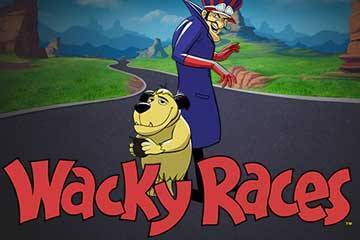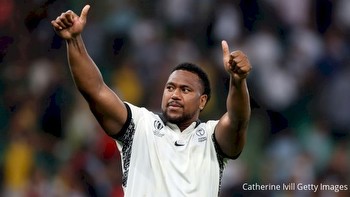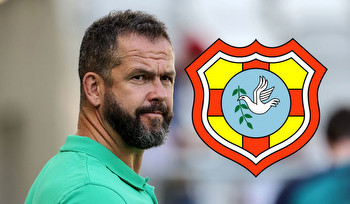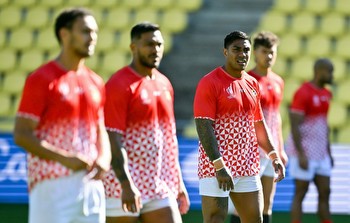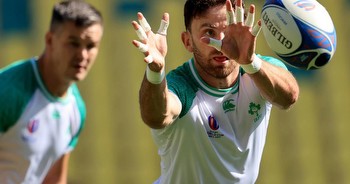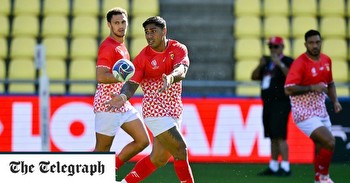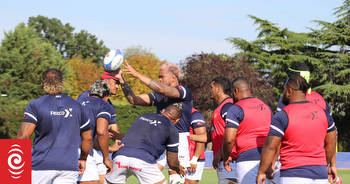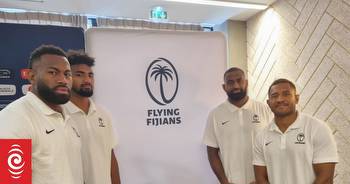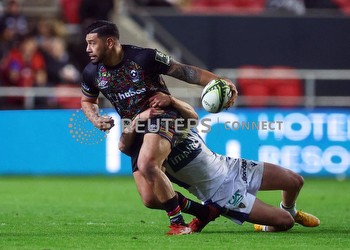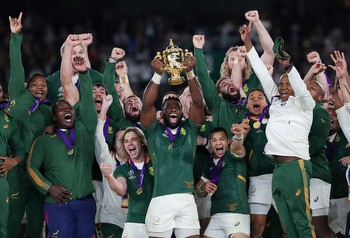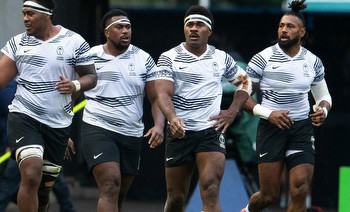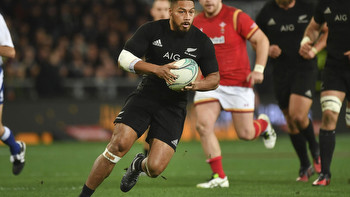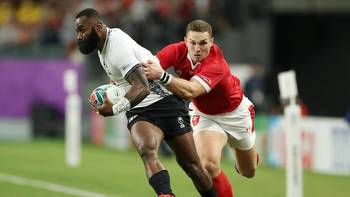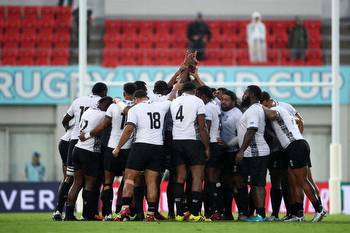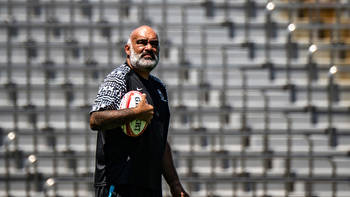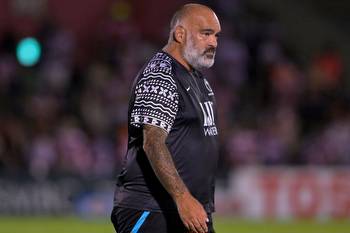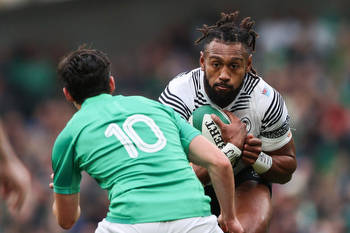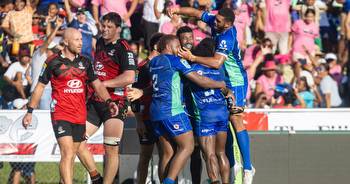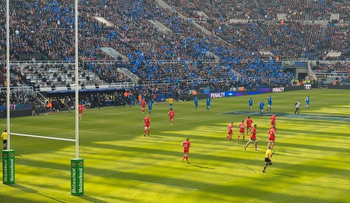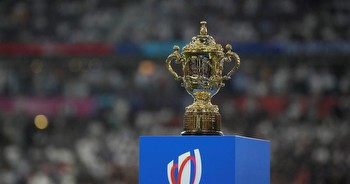Are Pacific island nations ready to set this World Cup alight?
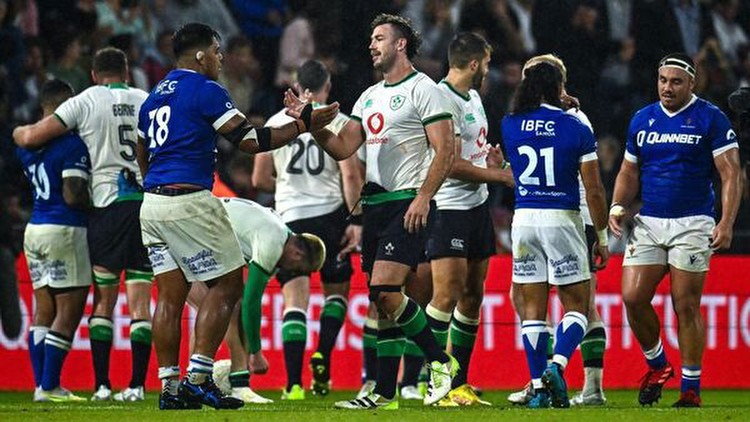
In looking at the final warm-up matches between the powerhouse northern unions and the Island nations, it would be overly convenient to jump to conclusions about the relative strengths of rugby’s perennial World Cup underdogs.
Yes, Fiji’s historic victory over the English at Twickenham was one to savour for the objective fan who has been crying out for evidence of noticeable shrinkage in the gap between the haves and the have-nots of this supposedly ‘global’ game, but litmus tests don’t return convincing results when conducted a fortnight before the genuine experiment.
Much the same could be said for the Ireland-Samoa clash, which undoubtedly left the more pessimistic Irish fan clutching at straws, rosary beads, ancestral folk songs, and a twist of rushes when it came to predictions of a green sweep of this year’s tournament. The 17-13 scoreline in Bayonne, intriguing as it was, is still no indicator of the true relative strengths of both sides.
Rest assured, as much as the Pacific Nations have shown signs of improvement, there is still a galactic distance between potential and performance. Many of the Pacific players remain, to all intents and purposes, rugby’s indentured servants. They are owned by private clubs for the express purpose of being available when international call-ups strip those clubs of tier-one nation players. Two of Fiji’s most exciting prospects, Api Ratuniyarawa and Peceli Yato, withdrew from the national side ahead of the World Cup after striking deals with French clubs.
Still, Fiji is riding high after a clean sweep of the Pacific Nations Championship, during which they found a formula to blend their natural athletic flair with a newfound discipline around the set piece and game structure. Game breakers abound in Fijian rugby, but where sevens rugby lends itself to the natural expression of instinct, test rugby has often exposed a lack of appreciation for the finer details.
Not this year. Head coach Simon Raiwalui and his assistants, New Zealanders Glen Jackson and Daryl Gibson, have instilled in this side a sense of discipline and respect for game strategy. Jackson, a former professional player and latterly an international referee, was himself an effective game manager at fly-half. Gibson, a 19-test All Black, has plenty of experience at Super Rugby coaching level.
It is Raiwalui, though, who would appear to have brought a harder edge. Having played for and captained the national side, Raiwalui has a deep understanding of, and appreciation for, the unique culture of Fijian rugby. Allied to this is his experience in English and French professional rugby where attention to detail is often more important than straight ability.
Drawn in Pool C, alongside Wales, Australia, Georgia and Portugal, Fiji will have to produce at least two world-class performances if they hope to advance to a quarter-final for just the third time in World Cup history. Many pundits have predicted the Fijians will account for Warren Gatland’s misfiring red dragons on this opening weekend, but history begs to differ.
Of major concern for Fiji will be the loss of starting fly-half, Caleb Muntz. Muntz was forced to withdraw from the tournament this week after suffering a knee injury in training. With long-serving fly-half Ben Volavola left out of the original 33-man squad, the inexperienced Teti Tela looks likely to start in this opener. That is a door swinging open for Wales to walk through.
That said, they may find a few brick walls on the other side. Up front the Fijians have plenty of experience in the likes of Peni Ravai and Sam Matavesi, while the second row has shown vast improvement over the season. Meli Derenalagi could be Fiji’s most talked about loose forward at this tournament. The backline is packed with talent, none greater than star midfielder Semi Radradra whose ability to break defences is legendary. That paves the way for the likes of Selestino Ravutaumada to wreak havoc on the edges.
The Fijian formula has worked its magic this season, and they have earned the right to be talked about in reverent tones, but all four Pacific Nations Championship teams will be on show at this World Cup. Japan and Samoa have found themselves in a challenging Pool D, alongside England and Argentina, while Tonga will be considered the longest of shots to escape Pool B against Scotland, South Africa and Ireland.
The Tongan side shook off a lacklustre Pacific campaign to record consecutive wins over Canada in their final tune-up, but they will have to wait until next weekend to play their first match of the tournament, against Ireland. There is an interesting calibration to that fixture: for Tonga, a chance to make a statement, for Ireland, a selection conundrum given they will have to subsequently face South Africa and Scotland. One of those matches will effectively be a knock-out.
Tonga’s squad has certainly been bolstered by the change in international eligibility. Lock Vaea Fifita, centre Malakai Fekitoa and fullback Salesi (Charles) Piutau are all former All Blacks. George Moala was another to switch allegiances, but his tournament was effectively over before it began after receiving a five-week suspension for a lifting tackle in the warm-up match against Canada.
With Pita Ahki, Tane Takalua, and Augustine Pulu and Solomone Kata all likely to lace up for the opening clash, the Tongan backline has more than a touch of class. However, the pack struggled for parity in the Pacific Nations and the big names of the back line were often starved of quality possession. If Tonga are to upset any of the three big teams in Pool B, they are going to have to find some forward starch.
Samoa, on the other hand, look to have revolutionised their forward play. Wins against Japan and Tonga in the Pacific Nations were built on grunt. Head Coach Vaovasamanaia Seilala Mapusua has at his disposal some of the heaviest hitters in the game. Fritz Lee, a gnarled veteran of New Zealand’s domestic game, Jordan Taufua, and former All Black Steven Luatua comprise a formidable loose forward trio, while veteran Charlie Faumuina has shored up one side of the scrum.
Lima Sopoaga’s switch to Samoa means the side has two world-class fly-half options, with former Wallaby Christian Leali’ifano the other. Ere Enari and Melani Matavao provide accurate, energetic service from scrum-half, and there is pace and power wide in the form of Ben Lam and Ed Fidow.
Like Tonga, Samoa have a tall order to reach a quarter-final for the first time since 1995. England, despite their erratic form this season, and Argentina are both preferred candidates, while Japan’s famous escapades in the last two editions of the tournament serve as a warning that head coach Jamie Joseph may have been keeping a few tricks up his sleeve this season.
Undoubtedly, there has been resurgent interest in the Pacific nations ahead of this World Cup, and the inclusion of Moana Pasifika and Fijian Drua in Super Rugby has certainly helped. But if a tropical sunrise is what you are searching for, you may be one edition too early.
FIJI: Semi Radradra (Bristol Bears)
When Radradra is at his best, he can make any opponent look like a rookie. Blessed with incredible vision for space, an agile step, and the spirit of adventure, Radradra has, since his switch to rugby union, become one of the most feared and respected players in the game.
His experience and leadership will be vital to Fiji’s chances of going deep in the tournament.
SAMOA: Theo McFarland (Saracens)
Despite being just ten tests into his international career, the 27-year-old lock has been one of the best performers for Samoa this season. Standing just shy of two metres, McFarland has become the go to target at lineout time, but it’s his work in open play that has turned heads.
McFarland has express pace and an otherworldly ability to beat defenders. His combination play is ludicrously impressive. He has the potential to be one of the breakout stars of the tournament.
TONGA: Pita Ahki (Toulouse)
Ahki may not be as well-known as his midfield partner Malakai Fekitoa, but his ability to read defences and to make tackles makes him the key cog in Tonga’s backline.
Ahki plays with genuine passion but is a street-smart centre with distribution skills and a lust for tough carries. Vastly experienced as a professional player, Ahki must not be underestimated. If he can play to his potential, he sets this team up for a big performance.
*The author is a commentator and writer for TVNZ. He has commentated at three Rugby World Cups and is the author of six sporting biographies.
